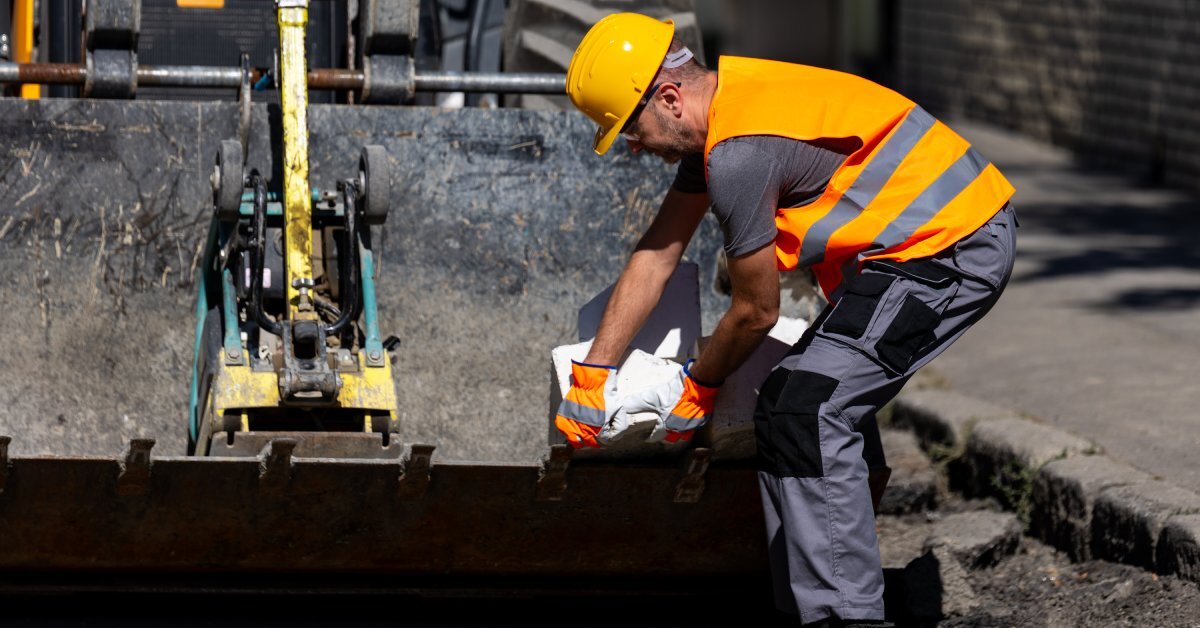Common Mistakes To Avoid When Operating Heavy Equipment
Sep 29th 2025
Sep 29th 2025
Operating heavy equipment comes with immense responsibility. Whether you’re handling excavators, bulldozers, wheel loaders, or other machinery, even small mistakes can cause safety risks, delays, or equipment damage.
For contractors, operators, and managers, avoiding common mistakes when operating heavy equipment protects both human and material resources. By recognizing common errors that occur while operating heavy machinery, you can take preventive measures to improve safety and efficiency.
Only skilled, trained operators should run heavy machinery. Rushing to assign an untrained team member to operate an excavator or a wheel loader can result in accidents or equipment damage. Employers should ensure certified professionals train their operators, as proper hands-on experience and knowing a machine’s controls significantly reduce errors.
Untrained hands may overlook key safety protocols, such as the correct procedure for shutting down equipment, properly handling bucket loads, or maneuvering in tight spaces. Supervisors must assess skills before assigning machinery responsibilities, and frequent refresher training keeps employees current on operational guidelines and safety measures.

Overlooking daily equipment checks leads to one of the most costly and common mistakes you should avoid when operating heavy equipment. Operators must always thoroughly inspect machinery before use. Ignoring warning signs like fluid leaks, worn-out hydraulics, or malfunctioning control systems can lead to mid-project breakdowns.
For instance, a malfunctioning hydraulic system in an excavator causes reduced lifting capacity or slower response times, potentially delaying an entire job. Routine inspections catch these problems early, cutting repair costs and avoiding delays.
Inspecting critical elements such as tires, tracks, braking systems, and engine performance ensures reliable machinery. Monitoring fluid levels, from fuel to hydraulic oil, prevents sudden equipment failures. Although these detailed pre-checks might feel tedious, they save significant time and costs in the long term.
Heavy machinery is designed to lift and transport substantial loads, but exceeding the manufacturer’s specified weight limits can strain critical components or cause dangerous system failures. Operators must always refer to operational manuals to know the equipment’s maximum rated capacity.
For example, loading a wheel loader beyond its capacity stresses hydraulics and joints, increasing wear. Similarly, excavators carrying overweight loads risk tipping or destabilization, jeopardizing crew safety.
Balanced load placement prevents tipping, especially on uneven terrain. By taking precautions like distributing weight evenly and respecting limits, operators enhance safety and extend machinery life. Additionally, companies can replace or upgrade essential structural components, keeping equipment durable enough to handle its intended capacity.
Ignoring terrain conditions places equipment and personnel at risk. Muddy, uneven, or debris-filled surfaces require careful maneuvering. Driving a bulldozer or wheel loader at high speeds over rough terrain can damage undercarriage components or lead to loss of control.
Operators should thoroughly analyze project sites, identifying slopes, soft ground, or obstacles that may interfere with movement. Adjusting driving style based on conditions, such as reducing speed and avoiding sharp turns, improves stability and protects both personnel and equipment.
Construction projects involve multiple teams working together, and failing to establish clear communication between operators and crew members often leads to misunderstandings. A spotter signaling an excavator operator incorrectly, for instance, might cause unintended collisions or digging too close to utilities.
Operators and supervisors should regularly assess communication gaps and implement clear systems, such as two-way radios or predefined hand signals. Encouraging open safety discussions among teams fosters a collaborative and safety-focused environment. Clear communication means operators act proactively to prevent unseen dangers during tasks.
Skipping or overlooking regular maintenance drastically reduces equipment lifespan. Heavy machinery experiences ongoing wear from daily use, and postponing servicing jeopardizes its productivity and efficiency.
Operators and supervisors should plan detailed maintenance schedules. Timely oil changes, filter replacements, and lubrication keep the machinery running optimally while reducing stress on critical components. Collaborating with reliable suppliers like Tractor Zone keeps projects moving without delays, as we provide high-quality parts such as hydraulic pumps, drive motors, and undercarriage parts.
Operators should monitor key maintenance indicators, such as abnormal noises, fluctuating performance, or power losses. Addressing issues promptly prevents them from turning into costly repairs or downtime.

Time pressures push operators to rush through tasks, increasing mistakes. For example, pushing backhoes or excavators to consistently operate at max speed hinders precision digging or material handling. Rushed movements wear out critical parts like hydraulic cylinders, tracks, and buckets faster.
Operators should balance speed with precision. Extending buckets fully and lowering bulldozer blades gradually minimizes strain on hydraulic systems and reduces wear. Managers can also set realistic deadlines to encourage crews to prioritize accuracy over speed. Sustainable workflows prevent avoidable strain on machines and uphold safety standards.
Ignoring operator comfort reduces focus, leading to mistakes. Failing to adjust seats or controls during long shifts strains operators, making it harder for them to maintain efficiency and safety.
Operators should set up their workspaces for optimal focus. Proper back support, good visibility, and easy access to controls improve comfort and reduce errors. Functional replacements, such as ergonomic seat designs and joystick controls, enhance daily work experiences.
Designing schedules that include breaks reduces fatigue-related mistakes. Managers should assess operator feedback on working conditions and implement adjustments to improve comfort and efficiency.
Starting a project without a defined workflow often causes inefficiencies and accidents. Operators managing heavy machinery in confined spaces need precise coordination to avoid delays and risks to crew members.
Supervisors should map equipment routes, establish material staging zones, and designate stopping points before beginning work. Preparing detailed protocols avoids unnecessary movements or unintentional misuse of machinery, keeping operations smooth and efficient.
When planning happens ahead of time, operators can complete tasks with greater confidence while avoiding interruptions caused by avoidable missteps.
Reducing operational mistakes begins with using reliable equipment. Tractor Zone offers a vast selection of heavy equipment parts, ensuring all machines maintain optimal performance. Our inventory supports an array of brands and machinery types across the construction and manufacturing industries.
Collaborating with trusted suppliers guarantees uninterrupted operations and reduced downtime. Tractor Zone’s durable, high-performing components empower operators to approach every task confidently. Supporting equipment longevity and jobsite reliability leads to fewer errors and improved safety outcomes.
Mistakes occur when operators lack preparation, skip maintenance, and rush tasks. Thorough training, pre-operation inspections, regular upkeep, and clear communication minimize risk while boosting efficiency.
Collaborating with Tractor Zone ensures access to high-quality components, further enhancing performance and reliability. Address these common challenges, implement proactive solutions, and maintain dependable equipment to optimize jobsite safety and project success. Operational excellence starts with preventative measures and the right equipment partner.